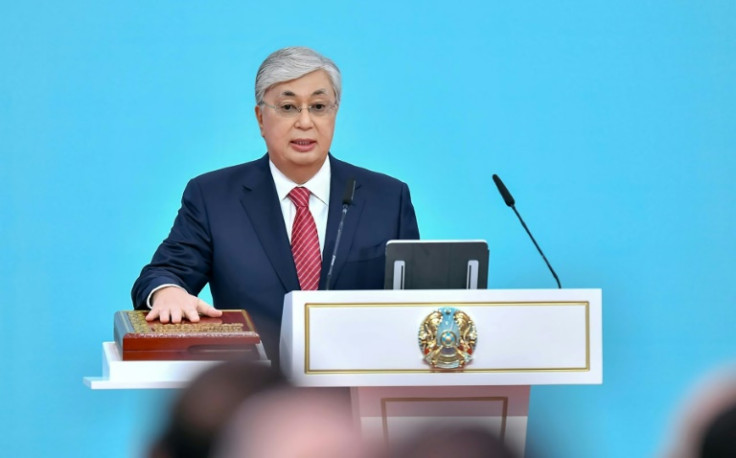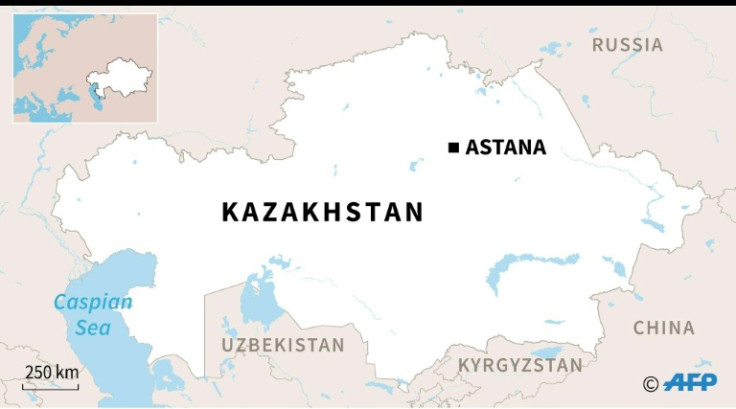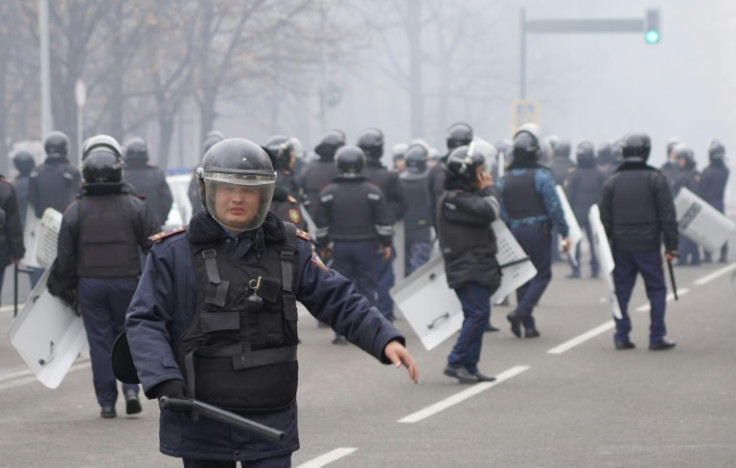Kazakhstan Kicks Off Snap Parliamentary Polls

Kazakhstan holds snap parliamentary elections Sunday as the leader of the Central Asian country pushes political reforms that critics say are designed to consolidate power one year after deadly protests.
Polling stations opened at 7:00 am (0100 GMT), according to AFP reporters in the capital Astana and Almaty, Kazakhstan's largest city. Around 12 million voters have until 8:00 pm to cast their ballots.
The huge, oil-rich nation is wedged between its former Soviet master Russia and China, which is gaining status in Central Asia as an economic powerhouse.
President Kassym-Jomart Tokayev announced the early vote as part of a "modernisation" drive introduced months after protests against fuel prices erupted in January last year. They were brutally crushed and 238 people died, according to the official toll.
Tokayev, a former diplomat, was hand-picked in 2019 by his predecessor and mentor Nursultan Nazarbayev to take the helm after a nearly three-decade rule. But Tokayev purged vestiges of that era after the demonstrations.
He promised to reform government institutions and in January dissolved parliament, saying early polls would "give new impetus to the modernisation".
The ex-Soviet country's elections now feature a wider array of candidates but there was scepticism in Almaty over the changes.
"Will I take part in the elections? No, to be honest... because I hardly believe in fair elections in Kazakhstan in general," Aset Smagulov, a 21-year-old IT specialist, told AFP before the poll.
Independent candidates are allowed to run for parliament for the first time in nearly 20 years, whereas the previous lower house was made up of three pro-government parties.
The threshold to enter the 98-seat legislature has been lowered to five percent and a 30 percent quota was introduced for women, young people and people with disabilities.
Political scientist Dimash Alzhanov said the ruling elites remain in control of the votes, despite the changes.
"The electoral system has changed and gives the impression of choice. But in reality, the president and his administration are keeping the vote count in their hands," Alzhanov told AFP.
"Here, elections are held in order to keep power. That's what elections are in an authoritarian country," he said.
After the riots that grew out of peaceful demonstrations against a fuel price spike, Tokayev was re-elected in a snap presidential vote in November, securing a landslide win in an election criticised for lacking competition.
Inequality and corruption persist and soaring inflation is hurting the purchasing power of the population of nearly 20 million people.
In economic hub Almaty, the campaign was in full swing with candidate posters on restaurant windows, scaffolding and street lamps.
Ambiguous slogans -- like "Order is where the truth is" or "With me there is no mess" -- reflect candidates' lacklustre political platforms.
But some young voters welcomed the new faces.
"This is the first time I've seen new parties and independent candidates in parliamentary elections. For me, it's new," Adia Abubakir, a 20-year-old graphic designer, told AFP.
In total, seven parties will participate in this election. Two of them were recently registered, but several opposition parties and independent candidates were banned.
"I would like to believe that my voice can make a difference," said Akbota Silim, a 21-year-old journalist.
Almaty-based political analyst Andrei Chebotarev estimated that four or five parties will be presented in parliament following the election.
"Loyal parties will be present in parliament and Amanat, the presidential party, will retain the majority of seats," he told AFP.
But he added: "The diversity of parties will have an impact on the acceptance of the election results, both for the population and internationally."


© Copyright AFP 2024. All rights reserved.





















